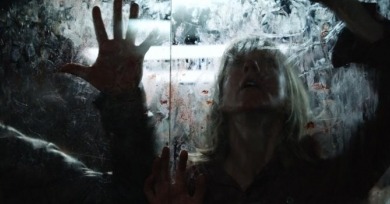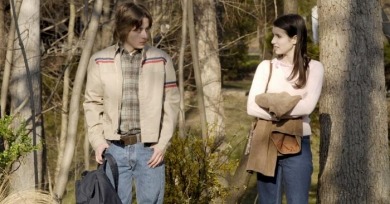Reviews
fter returning to Czechoslovakia in 1984, Vachek tended high-pressure boilers and drove delivery trucks until being allowed to work as a filmmaker again after the collapse of the communist government in 1989. “I leave when no one is leaving and I return when no one is returning, and I think that that is my fundamental life situation,” he says in his 2004 book The Theory of Matter.
The premise of Departures, this year’s Oscar winner for Best Foreign-Language Film, is unintentionally relevant in light of the recent global economic meltdown and consequent occupational erosion.
Unlike the Shanxi films, in which the director’s eye is set adrift in time and space along with his characters, 24 City is confident of what it’s seeing and where it’s going, held in the tight grip of a fiercely intelligent, aesthetically self-conscious auteur.
Through Yolande Moreau's astonishing performance in the title role, Seraphine is volatile, pitiable, comic, and crazed, but she is never simply a starry-eyed dreamer whom folks just don't understand.
The premise is that Pontypool is the epicenter of a language-based psychosis that turns the afflicted (who turn out to be anybody within earshot of the infected) into dead-eyed shufflers whose mouths are stuck hopelessly on repeat—that is, when they’re not chowing down on fellow human beings.
Rough around the edges though it may be, director Lee Isaac Chung’s film is an intermittently lyrical and genuinely affecting work that at times even emits the shock of the new.
Assayas captures the philosophical and emotional subtext of each of these mundanities with a delicate and droll touch, as the silences and spaces between the characters continually threaten to pierce the film’s austere surface and reveal the depth of the family drama underneath.
The best thing about Guest of Cindy Sherman, Paul H-O and Tom Donahue’s shaggy dog documentary about H-O’s unlikely love affair with art star Cindy Sherman, is its unpredictable trajectory.
Against all the odds facing the indigenous filmmaker, he’s carved out a recognizable worldview and sets of concerns, populated his work with indelible, rounded characters, and worked his way through an emerging individual aesthetic.
Rudo y Cursi is an eager-to-please, mainstream entertainment machine. But as in a well oiled, whirring contraption that skips a gear, the moving parts never click into a working film. Tap on it and it topples.













